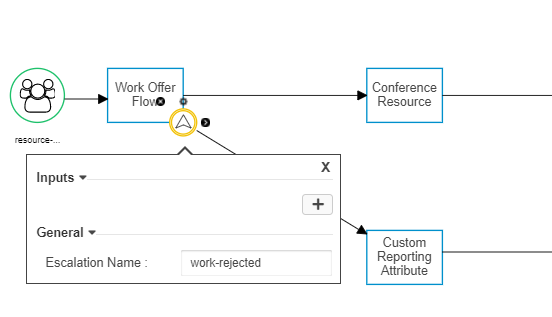Flow Escalations
Escalations are thrown when there is an exception in the flow. If an escalation isn't caught, the branch of the flow is terminated. Catch escalations by adding a decoration to the flow that they come from. The escalation bubbles up through nested reusable flows.
For more information on signals, see Flow Signals.
- Escalation Name: The name of the signal to enter in the Escalation Name field of the flow notation. This is the signal being thrown or caught. Escalation Name is available in notations such as: Flow Error Catch and Flow Error Throw. Refer to the Flow Designer Reference for a current list of flow notations to identify which use escalations.
-
Description: A description of the signal and what action it causes or is a result of.
-
Parameters (Events): The parameters you can include when the signal is thrown. Parameters can be bound to variables when the signal is caught.
This reference contains a list of commonly used escalations.
| Escalation Name | Description | Parameters |
|---|---|---|
| callback-expired | Thrown as a signal and then as an escalation if a callback is requested but not answered within Expire Callback After Hours. By default, this is 72 hours. |
Copy
|
| dequeue-timeout | Thrown as a signal and then thrown as an escalation if the callback offer times out. |
Copy
|
| queue-callback-unanswered | Thrown as an escalation when a callback request is not answered by a customer |
Copy
|
| transfer-cancel | Thrown if a transfer is cancelled or if the customer disconnects mid-transfer. |
Copy
|
| work-rejected | Thrown when a work offer is rejected by a resource. |
Copy
|


